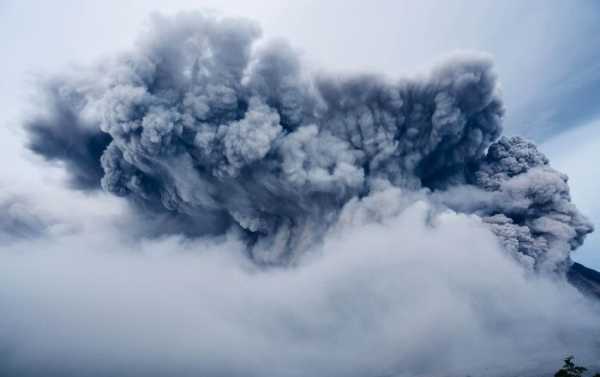
The Toba super-eruption roughly 74,000 years ago was one of the most colossal that ancient man experienced. The so-called Toba catastrophe theory claims the event resulted in extreme cooling and triggered a glacial period that left humans on the brink of extinction.
A new study claims that stone tools discovered in Dhaba, north-central India, suggest that ancient humans were able to adapt to drastically-altered conditions in the wake of the Toba volcano eruption at the site of present-day Lake Toba in Sumatra, Indonesia, some 74,000 years ago.
The research, “Human occupation of northern India spans the Toba super-eruption ~74,000 years ago”, published on 26 February in Nature Communications, looks at a progression of stone implements from between 25,000 to 80,000 years ago found in Middle Son Valley near Dhaba.
Max Planck Institute anthropologist Michael Petraglia was quoted by National Geographic as saying:
The Dhaba site, claim the scientists, shows no evidence to support the theory for such a cataclysmic impact.
Although no fossil remains of Homo sapiens were found at Dhaba site, rocks shaped into sharp tool-like objects were unearthed, with experts claiming these are consistent with artifacts earlier found in Australia and the Arabian Peninsula, dating between 48,000 to 80,000 years ago.
The more recent upper layers of sediment, dating back 25,000 years, produced smaller stone blades.
The study, claim its authors, offers evidence that the resilient community that left behind the artifacts survived the ancient eruption and lasted at least another 50,000 years. The same research suggests that ancient Homo sapiens migrated out of Africa earlier than generally believed. The current existing estimates suggest the time frame as being between 60,000 and 70,000 years ago.
The research is based on previous studies carried out in 2007 at a different archaeological site in southern India – a country located at a critical geographic crossroads for studying dispersal of Homo sapiens out of Africa and into Asia and Oceania.
It was here that some of the archaeologists involved in the current study found stone tools from before and after the eruption, thus seeming to “connect the dots” between India, southeast Asia, and Australia for modern human dispersal.
Whatever populations did reside in Dhaba, the new evidence seems to suggest they were not nearly wiped out by the Toba eruption, even though their survival must have been challenged in other ways, as studies shown them to have contributed negligibly to the modern gene pool.
Sourse: sputniknews.com
0.00 (0%) 0 votes


































